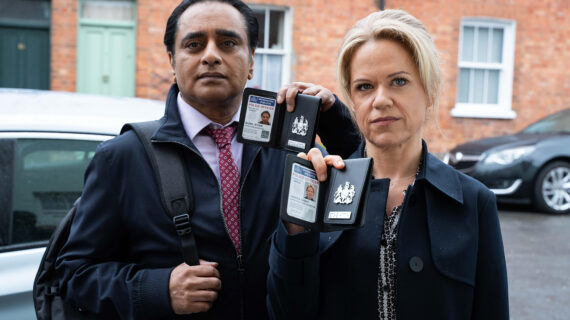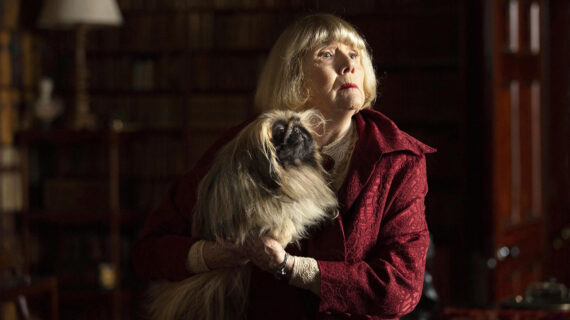Frederica Freyberg:
Governor Scott Walker has declined to call a special election in two districts whose legislators left office late last year for jobs in the governor’s administration. Voters in Senate District 1 and Assembly District 42 will have to wait until November of this year to fill the seats. Whoever wins won’t be sworn in until January, more than a year after the two Republicans departed. In tonight’s WisContext, reporting that looks back over nearly 50 years of 105 special elections in Wisconsin, finds Scott Walker’s decision is unprecedented. Reporter Scott Gordon is here. Thanks a lot for being here.
Scott Gordon:
Thank you for having me.
Frederica Freyberg:
So in your reporting you say it’s normal for governors to call special elections swiftly. And Governor Scott Walker is challenging that norm. But Scott, it really seems like he’s not just challenging it. He has set a new record in this regard. Describe how.
Scott Gordon:
Well, that’s what it seems like based on all the data that we could pull together on when legislative seats have been vacated before the natural end of a term and when governors have decided to call an election or not to fill it. Typically speaking, going back to the early 1970s, people have acted pretty quickly about this. Obviously the governor has some discretion over that under state law, but generally they’ve done this really fast, you know, within a few weeks, sometimes calling it, you know, the day on or before a legislator’s resignation becomes effective if they’ve had advance notice of that. So leaving a legislative seat open for effectively more than a year, we couldn’t find an example of that. And we also asked the governor’s office if they knew of a precedent of that and they declined to offer one.
Frederica Freyberg:
What did the governor’s office say was the rationale for not calling these two special elections in a more timely fashion?
Scott Gordon:
Well, they’ve got a few talking points that we’ve stuck to pretty consistently throughout this story as it’s played out in different outlets. One is that technically they believe the state statute governing special elections allows them to do that and that’s highly dependent on how you interpret the wording of the statute. They also argue that they can’t justify spending public funds on having special elections. And they’ve also pointed out that the legislative staff will still be working in those districts.
Frederica Freyberg:
One thing that brings to mind is how expensive is it to do a special election?
Scott Gordon:
Well, the thing is we couldn’t find a really good, solid figure on that because according to the Wisconsin Elections Commission, it turns into a very apples and oranges thing depending on the turnout and circumstances of an election. We were basically told certainly it cost a few thousand dollars, but it’s going to depend on where that is and the state doesn’t always gather that data really thoroughly as it turns out.
Frederica Freyberg:
So that’s what the governor’s office tells you. What are other people saying about why the governor might not have called for these special elections?
Scott Gordon:
Well, there’s obviously a lot of speculation about are the Republicans worried about a Democrat coming in and flipping either of these seats, which is what happened with the state Senate District 10 just earlier this month. And so there’s — yeah. There’s the concern that it’s based more on partisan politics than anything else.
Frederica Freyberg:
And yet that Senate election in District 10 happened after this, right? Happened after his decision to allow this to go until the November 6 election.
Scott Gordon:
Right. They had staked out their position on this before that election happened. But obviously in other states there’d already been signs that it’s a political climate where these kinds of upsets can happen.
Frederica Freyberg:
Like out of Virginia.
Scott Gordon:
Sure. So it would have been in mind, if not the motivating factor. Can’t tell. But, you know, certainly in the atmosphere there.
Frederica Freyberg:
In your historical look back, you did find there were three other examples I think where seats were held vacant in the 200-day range. Did you find a political component to those?
Scott Gordon:
I wasn’t really sure. Some of them seemed like instances where the legislative season would have been wrapping up by the time they were able to get a new person in office. And that’s another justification that’s been offered in this case as well. Most of the actual voting and stuff will be over for the year before you could legally elect and seat new people in these districts no matter how you did it. But we didn’t really get a chance to delve too much into what the motivations would have been for those particular cases. But those were outliers, and the vacancy that we’re going to have now in these two seats is an outlier to those.
Frederica Freyberg:
Right. In Senate Districts 1 and Assembly District 42, they’re vacant until January of 2019. Who’s representing the voters’ interest in those districts, in those capitol offices?
Scott Gordon:
Well for the governor’s office and people who favor leaving those seats open for the time being, the line is that legislative staff are taking care of that. Of course, legislative staff are often very capable, but it’s not the same as having an actual elected representative.
Frederica Freyberg:
All right. And you have a little companion reporting on this, kind of a behind-the-scenes of how you gathered all this information.
Scott Gordon:
That's correct.
Frederica Freyberg:
And people can look for that at WisContext.org. Look for Scott's complete report and that companion reporting at WisContext.org.
Search Episodes
Related Stories from PBS Wisconsin's Blog

Donate to sign up. Activate and sign in to Passport. It's that easy to help PBS Wisconsin serve your community through media that educates, inspires, and entertains.
Make your membership gift today
Only for new users: Activate Passport using your code or email address
Already a member?
Look up my account
Need some help? Go to FAQ or visit PBS Passport Help
Need help accessing PBS Wisconsin anywhere?

Online Access | Platform & Device Access | Cable or Satellite Access | Over-The-Air Access
Visit Access Guide
Need help accessing PBS Wisconsin anywhere?

Visit Our
Live TV Access Guide
Online AccessPlatform & Device Access
Cable or Satellite Access
Over-The-Air Access
Visit Access Guide
 Passport
Passport

















Follow Us